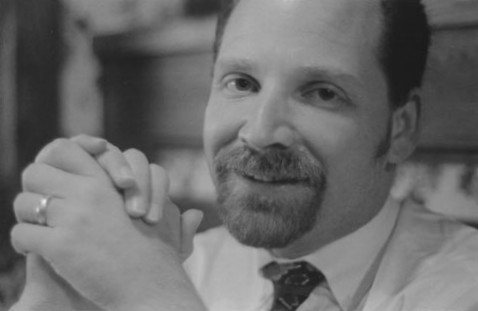Zeke Zeidler
|
Zeke Zeidler Born January 27, 1964 Redondo Beach School Board President Redondo Beach, California 80,000 constituents |
Career Overview Elected March 1995
|
Interview with Zeke Zeidler for Out And Elected in the USA
Redondo Beach is a small suburban town in a corner of the sprawling Los Angeles basin. This type of small community makes it easy to measure the real impact of being an openly gay official, as I’ve discovered in my role on the School Board. When I first ran for a seat on the School Board in 1995, the school district administrators and board members, city council members, local newspaper reporters, my endorsers (many of whom were public officials) and the other seven candidates all knew I was gay. Yet immediately after my election, I was accused of being a “stealth” gay candidate, with some expressing “concern” about my “hidden gay agenda.”
The attack was surprising for two reasons. First, during the campaign, one of the other candidates had indirectly attacked me by implying that I would want to teach about “alternative lifestyles.” Second, I had freely volunteered information about my sexual orientation in response to questions from constituents during my precinct walking. For example, when one asked if I had children and if I was married, I explained that I could not legally marry, but that I was in a long-term relationship with a wonderful man. I left that conversation with the enthusiastic support of a voter who valued my candor.
My concern about perceptions of a “gay agenda” made feel that I had to prove myself more knowledgeable, more circumspect, and more focused on the needs of the children than any other elected official. My history of commitment to children’s issues – as a Children’s Court attorney, as an active member of school district committees, and as a fundraiser for the local education foundation – was not enough. I also had to earn respect for my knowledge and ability to solve problems related to curriculum, budget, personnel, and district property. My commitment and loyalty to our local community resulted in an incredible return of friendship and loyalty from a wide political spectrum of people, with the added benefit that they were open to learning about and supporting gay and lesbian issues.
The first time I mentioned sexual orientation at a school board meeting was during a discussion of a contract’s non-discrimination clause. When I mentioned the clause did not include protection against discrimination based on sexual orientation, one of the other school board member corrected me by pointing out that “sex” was listed. After I explained the difference, “sexual orientation” was added by consent (without need for a vote).
Less than four years later the school board was asked to approve a union-negotiated teachers’ contact that included domestic partnership benefits. The board approved it over the objection of 150 vocal far-right residents at the meeting. They left after the vote on the contract and, significantly, before the discussion about curriculum standards. In contrast, I was touched by the parents who, with no vested interest, took to the podium to speak in favor of recognizing that all families are not the same, that health benefits are needed by all types of families, and the district would benefit if the families of all its employees had adequate health care. Many of those people stood up to be counted because they knew me and my partner, Jay, or other openly gay or lesbian couples and respected the people in those relationships.
Ultimately, aside from the hard work, discipline and commitment we pour into our daily tasks that make us role models for public service, the biggest difference we can make to advance equality and fairness for the gay and lesbian community is by being open and honest about who we are and about our significant relationships. It is my experience that personal knowledge about us, and interaction with us, does strip away the myths, stereotypes and fears that give rise to bigotry in the first place.
Return to Out and Elected in the USA index • Go to next article
